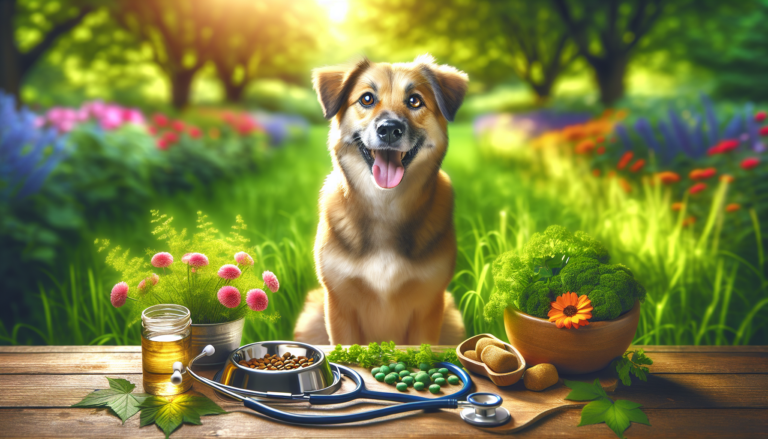Understanding Dog Health
When it comes to keeping our furry friends happy and healthy, understanding dog health is paramount. Just like humans, dogs require regular check-ups to maintain their overall health. Annual visits to the vet for vaccinations, dental cleanings, and general wellness checks can help prevent many of the common ailments that dogs face. Puppy and senior dogs especially need vigilant health monitoring due to their unique needs at different life stages.
Maintaining dog health also encompasses understanding the signs of illnesses. Dogs, like people, can experience a range of health issues from minor to severe. Symptoms such as lethargy, loss of appetite, vomiting, or unusual behavior can be indicators of underlying problems. Being observant can help catch issues early, leading to better treatment outcomes.
Moreover, the importance of preventative care cannot be overstated. Regular vaccinations protect against diseases, while flea and tick prevention wards off pests that can cause not only discomfort but also serious health concerns.
The Role of Nutrition
Dog nutrition is another vital aspect of responsible pet ownership. A dog’s diet plays a crucial role in their overall well-being, impacting everything from energy levels to coat condition. The right nutrition can help your dog live a longer, healthier life. One of the most significant decisions you’ll make as a dog owner is choosing the right food.
Commercial dog foods come in a variety of options, from kibble to wet food to raw diets. It’s essential to assess your dog’s specific needs based on their age, activity level, and health condition. Puppies require a different balance of nutrients than adult dogs, and senior dogs often benefit from special diets that help with digestion and joint health.
Reading food labels can be tricky, but it’s important to look for high-quality ingredients, avoiding fillers like corn or soy. A good diet should have a balance of proteins, carbohydrates, fats, vitamins, and minerals. If you’re considering homemade diets, ensure you consult with a veterinary nutritionist to avoid deficiencies.

Training: The Foundation of a Good Dog
Dog training is an essential element of responsible pet ownership. Proper training not only establishes boundaries for your pet but also strengthens the bond between you and your dog. A well-trained dog is a happy dog; they feel secure when they understand what is expected of them. Training can encompass basic commands like sit, stay, and come, as well as addressing behavioral issues such as barking and chewing.
Positive reinforcement techniques, such as treats and praise, have proven to be the most effective methods for training dogs. Patience is key; every dog learns at their own pace. Consistency is also critical—use the same command and reward system so your pup knows what to expect.
Furthermore, dog training doesn’t stop at basic commands. Engaging your dog in activities like agility training, obedience classes, or even scent work can provide physical and mental stimulation. Socialization is another important aspect; exposing your dog to various environments, people, and other animals can help them become well-adjusted companions.
The Heart of the Matter: Dog Adoption
Dog adoption is a significant responsibility that comes with immense rewards. Adopting a dog, rather than buying from a breeder, not only provides a loving home to an animal in need, but it also supports local shelters and rescues. Many dogs waiting for adoption are already trained and socialized, making them a fantastic option for first-time pet owners.
Before committing to adoption, it’s essential to assess your lifestyle and how a dog will fit into it. Consider factors such as your activity level, living arrangements, and the time you can dedicate to your new companion. Remember, dogs require time, attention, and love to thrive.
Another essential aspect to think about is breed and size. Different breeds have different needs and characteristics. Researching a breed’s overall health issues, temperament, and energy levels can ensure a match that aligns with your lifestyle and preferences.
Once you’ve adopted a dog, the real adventure begins. They’ll need patience and guidance to adjust to their new surroundings. It’s crucial to maintain an open line of communication with your vet regarding any health concerns and to prioritize ongoing training and socialization.
Creating a Healthy Living Environment
Creating a healthy living environment for your dog is not just about food and medical care but also about fostering a safe and nurturing space. Dogs need their own spots, whether it’s a cozy bed in the corner of your living room or a crate for a little sanctuary. Items like chew toys can help promote dental health and keep boredom at bay.
Regular exercise is also a vital aspect of a dog’s well-being. Different breeds have varying energy levels; some may require more vigorous walks or runs, while others may be content with a leisurely stroll. Engaging in outdoor activities, such as hiking or playing fetch, helps dogs expend energy and strengthens your bond.
A dog’s mental health is just as important as their physical health. Engaging with your dog through puzzle toys, training exercises, or interactive games can enrich their lives and keep their minds sharp. Dogs that are mentally stimulated are less likely to develop destructive behaviors out of boredom.
Final Thoughts
Owning a dog is a lifelong commitment filled with joys and challenges. By focusing on dog health, nutrition, training, and adopting responsibly, you can create a loving and supportive environment for your furry friend.
As author Robert Louis Stevenson once said, “You think dogs will not be in heaven? I tell you, they will be there long before any of us.” Understanding our responsibilities as dog owners ensures we provide the best life possible for our four-legged companions, where their health and happiness come first. Embrace the journey of pet ownership; it’s a rewarding adventure that leaves paw prints on your heart forever.